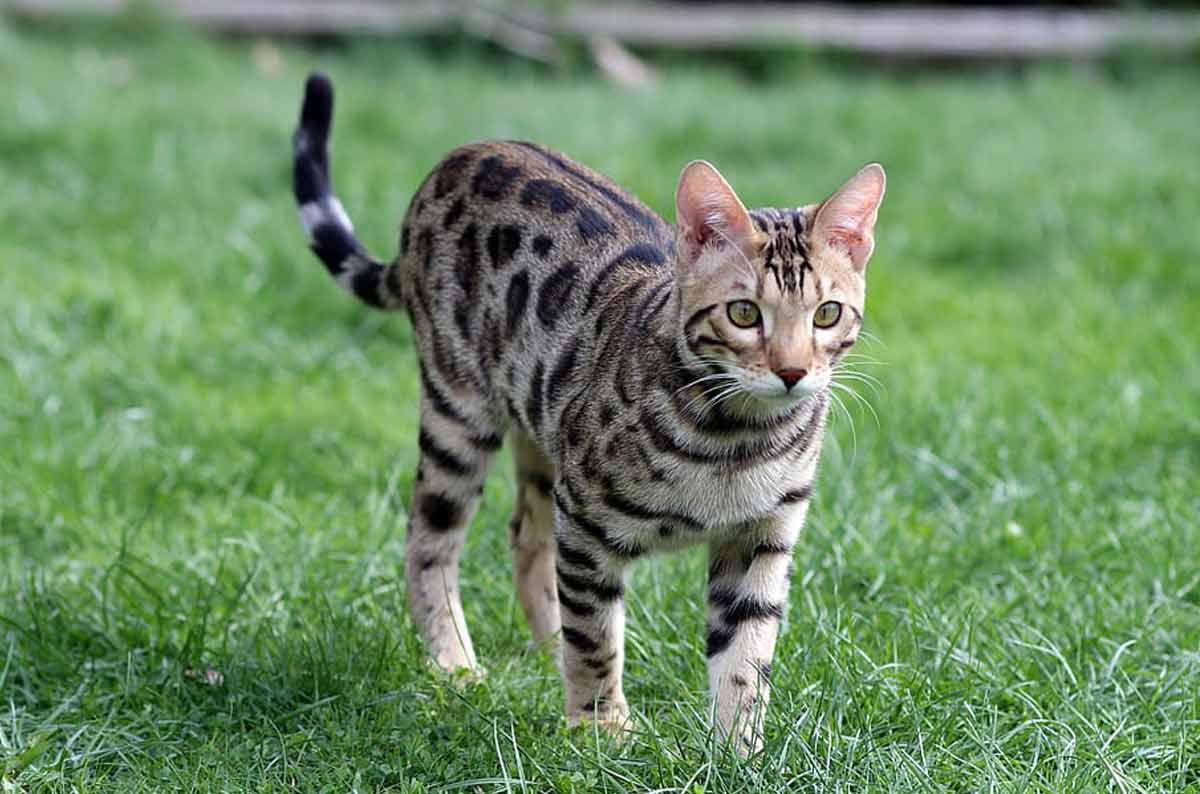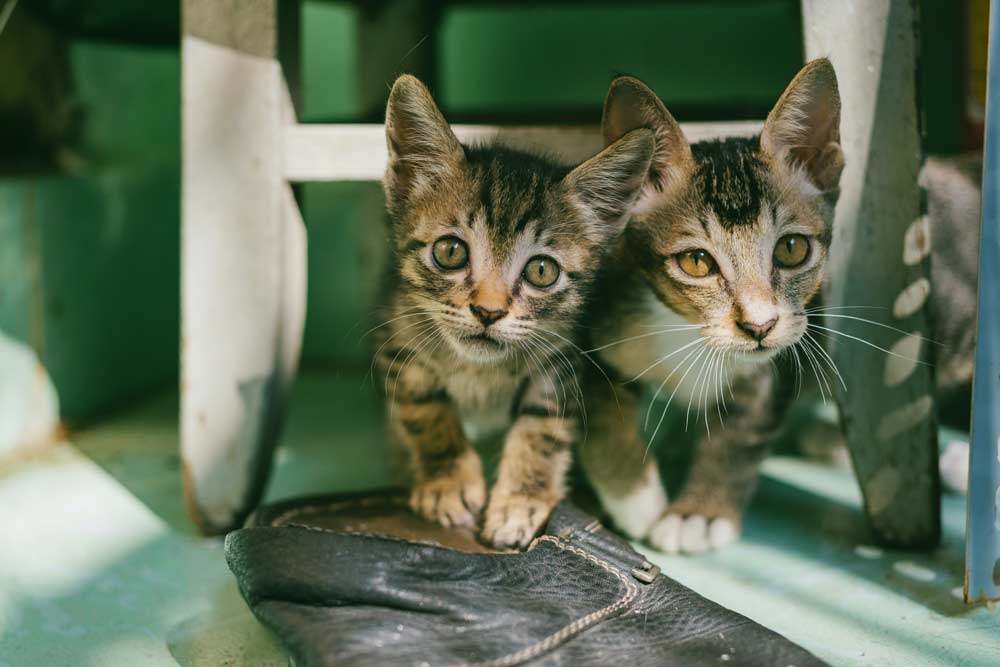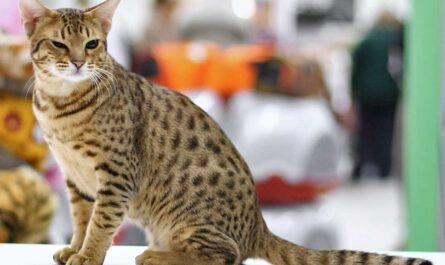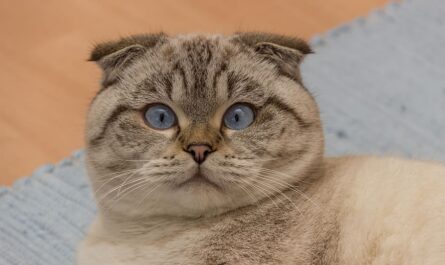The Bengal cat, a truly distinctive breed, traces its lineage to a captivating blend of Asian Leopard cats and domestic felines. However, the road to establishing this breed was marked by a twist of fate and human ingenuity. The Bengal cat breed is captivating and athletic, making it a prized gem in the feline world. Whether you’re a novice to Bengal cats or an experienced owner, this website will be your guiding light on this remarkable journey. From delving into the breed’s origins and exploring its diverse variations to selecting your new feline companion and mastering the art of care, our guides offer something for everyone.
In the early 19th century, the allure of big cat hybrids graced European zoos, though this experiment proved impractical for such institutions. The concept, however, found fertile ground in the world of small cats. Wild cat hybrids, particularly the Bengal, soared in popularity as delightful companions, renowned for their elongated physique and remarkable fur patterns. Yet, their proximity to their untamed ancestors occasionally demands a seasoned touch.
A Captivating Modern Breed
The Bengal cat stands as a truly contemporary creation, originating in the United States. In 1963, geneticist Jean Mill embarked on groundbreaking experiments, fusing a domestic cat with the Asian leopard cat, Prionailurus bengalensis bengalensis, native to South Asia. Her mission? To craft a domestic feline boasting the untamed allure of its wild forebears.
While Mill’s endeavors were revolutionary, it’s worth noting that the concept was not entirely new. As far back as 1889, British artist and journalist Harrison William Weir had alluded to crossbreeding Asian leopards and domestic cats. Belgian and Japanese publications in 1934 and 1941 echoed these ideas. However, Jean Mill’s influence and dedication reign supreme in the Bengal’s history.
In 1946, she embarked on her research paper on cross-breeding during her genetics studies at UC Davis. In the early ’60s, she translated theory into practice, crossing Asian leopards with domestic cats. These direct crosses with wild cats bore the label ‘F1.’ Subsequent generations, achieved by breeding an F1 cat with a domestic counterpart, adopted designations such as ‘F2’ and so forth. Cat accessories on Amazon.
Exploring the Average Size
Bengals are a breed of medium to large cats, graced with an athletic, yet gracefully slender build. Their long bodies, adorned with muscles, can give the impression of being larger than they truly are. On average, males weigh between 4.5kg and 6.8kg, while females tip the scales at around 3.6kg to 5.4kg.
Understanding Life Expectancy
Bengals typically enjoy a lifespan ranging from 12 to 16 years, a reasonably common duration in comparison to other domestic cat breeds. While some specific diseases pose higher risks to Bengals, they generally maintain robust health.
Diverse Ownership
Bengals are versatile companions, suiting both families seeking a conventional pet and dedicated Bengal enthusiasts and breeders. They adapt seamlessly to various living environments, whether you reside in bustling cities or tranquil countryside settings. Whether your Bengal roams indoors or outdoors, they effortlessly integrate into your lifestyle.
Unraveling Breed Origin
Originating in the United States during the 1970s, the Bengal cat gradually found its way to the United Kingdom, surging in popularity over the past two decades. The breed garnered formal recognition from the GCCF (Governing Council of the Cat Fancy) in 1997, achieving Championship status in 2005.
Delving into Bengal History
Despite the misconception, Bengals do not derive their name from the Bengal tiger; rather, it originates from the Latin name for the Asian Leopard Cat (“Prionailurus bengalensis”). This is because the Asian Leopard Cat played a pivotal role in the Bengal cat’s ancestry. American breeder Jean Mill embarked on a breeding journey, crossing the Asian Leopard Cat with domestic shorthairs. The result was a spotted female cat, which was further bred to produce both spotted and solid kittens.
In the 1970s, Dr. Willard Centerwall of Loyola University initiated crossbreeding experiments between Asian Leopard Cats and domestic cats. This endeavor aimed to explore if the Leopard Cat’s immunity to feline leukemia could be inherited by hybrid offspring.
Jean Mill, in possession of some of Centerwall’s kittens, subsequently bred them with an orange Indian domestic shorthair and a brown spotted tabby. The ensuing litter served as the foundational stock for today’s Bengal cats.
Despite being a domestic breed, Bengals must be at least four generations removed from their wild ancestors to meet breed standards. Their journey to recognition was marked by the International Cat Association’s acknowledgment in 1983 as an experimental breed, culminating in full recognition in 1991.
Tracing the Original Gene Pool
The Bengal’s lineage traces back to the wild Asian Leopard Cat, initially crossbred with tabby cats to create the F1 (first) generation. Subsequent hybridizations involved oriental cat breeds like the Abyssinian, Egyptian Mau, and Burmese. The F1, F2, and F3 generations serve as the foundational building blocks for the breed’s genetic diversity.
The Visionary Breed Founder
Jean S. Mill embarked on a visionary quest in 1963. Her goal was to create a feline embodying the elegance of domestic cats and the striking spots of their wild counterparts. By crossing a black shorthaired domestic cat with a female Asian Leopard Cat, she sought to offer the public a leopard-like cat, reducing the demand for Asian Leopard Cats as pets or fur sources. This pivotal step was a significant leap toward preserving the Asian Leopard Cat population.
Personality and Temperament of Bengals
Bengal cats, despite their untamed ancestry, tend to be surprisingly amiable and trainable, according to their owners. These felines may not be keen on laps, but they harbor a genuine affection for humans, particularly children. Bursting with energy, Bengals revel in play and indulge their hunting instincts, a characteristic they’ve inherited from their wild forebears.
An intriguing quirk that harks back to their Asian Leopard Cat lineage is their penchant for water. Many Bengals adore swimming, and you might just find them frolicking in the sink or even relishing a good bath.
Bengals are renowned for their remarkably friendly demeanor, forming deep bonds with their human companions. Their loyalty often evokes comparisons with dogs, setting them apart from the typical aloofness associated with cats. Uncommonly, Bengals display a fondness for water, often paddling or playfully swatting at running water sources. This affinity may lead to playful interference during activities like running taps, showering, or flushing toilets. Providing a cat drinking fountain proves an excellent way to encourage their water intake.
These high-energy cats require substantial playtime to engage both their physical prowess and sharp intellect. Their astounding leaping abilities have been known to send valuables soaring, so prudent safeguarding of cherished items is recommended. See why thousands of cats love BoxCat
An In-Depth Description
Bengal cats exhibit medium to large builds, sporting a lean, muscular frame. Their long tails are held low, while broad heads with rounded, petite ears give them an exquisitely distinguished appearance. Prominent whisker pads surround almond-shaped eyes, rimmed in black. Large, round paws complete their remarkable physiques. Their appearance mirrors their wild counterparts, remaining alert and energetic as they navigate their surroundings. Their short, dense coat shimmers gloriously in sunlight, available in three colors—brown, silver, and snow—and two patterns—spotted and marbled.
Indoors vs. Outdoors
Despite their unwavering loyalty, Bengals harbor strong hunting instincts, compelling them to venture outside for hours each day. This outdoor exploration helps them channel their abundant energy. For some owners, indoor living is the preferred choice, provided the Bengal enjoys ample toys and entertainment. This decision often stems from living in urban areas near busy roads or concerns about theft, especially given the breed’s pedigree status.
The Alluring Bengal Aesthetics
Bengals are undeniably among the most visually captivating domestic cats worldwide. Crafted to resemble miniature leopards, these felines are a feast for the eyes.
Navigating the Wild Side
F1 and F2 cats often exhibited the wild tendencies characteristic of their forebears. Mill’s solution was to mate female F1 cats with their domestic counterparts, yielding F2 cats. After two to three more generations, the descendants gradually adopted behaviors akin to their domestic kin.
A pivotal moment arrived in the 1970s when Mill resumed breeding efforts, thanks to scientist William Centerwall, who provided female hybrid cats. Centerwall had paired Asian leopard cats with domestic counterparts to study feline leukemia immunity. This marked the birth of the modern Bengal cat breed, officially recognized by The International Cat Association (TICA) in 1983.
In the early days, breeders experimented by introducing Abyssians, Egyptian Maus, and American Shorthair cats to perfect the Bengal’s desired appearance.
Vocal Chatterboxes
Bengals stand out as incredibly talkative cats, vocalizing more frequently than the average domestic cat. Their repertoire extends beyond ‘meows’ to include grunts, coos, and yowls.
Interactive Companions
Bengals shine as one of the most interactive cat breeds, making them ideal family pets or companions for those who stay home during the day. Their high intelligence makes them receptive to games, tricks, and playful interactions with their owners.
Intellectual Prowess
Among the select few cat breeds amenable to learning tricks, Bengals relish engaging in activities like ‘fetch’ or playing with interactive toys. Their love for surveying their surroundings from elevated positions makes cat climbing frames a favorite pastime.
Thirst for Play
To stave off boredom, Bengals require a constant supply of toys, especially when no one’s at home to entertain them. Their intelligence demands more complex playthings. As water enthusiasts, a small paddling pool with floating objects offers hours of entertainment on warm days.
Mastering Litter Tray Training
Litter trays are essential for indoor-living Bengals. These clever cats typically learn litter tray usage from their mothers at a young age. Place multiple trays around your home, away from food and water areas, for hygienic and private toileting.
Social Butterflies
In stark contrast to the solitary nature of most cats, Bengals thrive in bustling, family-oriented environments, relishing companionship and activity.
Child-Friendly Companions
Choosing a Bengal as a family pet introduces excitement and playfulness into your child’s life. These sociable cats engage energetically with children, making them delightful companions. Always supervise interactions between children and pets to prevent accidents.
Harmonious Relations with Other Animals
Bengals readily befriend cat-friendly dogs and coexist peacefully with other cats when introduced early, particularly if they are siblings. Smaller animals, however, may be seen as prey due to the Bengal’s strong hunting instincts.
Common Diseases and Conditions in Bengals
Bengals, like all breeds, have their share of health concerns. Understanding these issues is vital for their well-being:
Heart Disease (Hypertrophic Cardiomyopathy): Older Bengals may suffer from thickening heart muscles, leading to complications like blood clots, immobility in the back legs, and congestive heart failure, often culminating in fatality. Watch out for signs such as panting and lethargy.
Progressive Retinal Atrophy (PRA): This family of eye diseases gradually erodes the retina, resulting in varying degrees of vision loss. Detecting PRA can be challenging since some cats carry the disease without showing symptoms.
Cataracts: Similar to humans, feline cataracts manifest as cloudiness in the eye, impinging on vision. Fortunately, cataracts are treatable through surgery.
Anesthetic Allergies: Bengals exhibit heightened sensitivity to anesthetics, necessitating utmost care during surgical procedures to avoid adverse reactions, which can lead to cardiac arrest.
Joint Problems (Patella Luxation): Some Bengals may experience patella luxation, where the knee joint intermittently dislocates. Surgery may be required for severe cases, but weight management can alleviate milder instances.
It’s important to note that not all these conditions are covered by pet insurance, so it’s prudent to review the policy details.
Common Claims by Bengal Owners:
- Abnormal fecal appearance
- Fracture of thoracic limb
- Pancreatitis
- Vomiting
- Wound-related issues
Bengal Cat Facts and Quirks:
- These cats relish learning tricks, providing both mental stimulation and a way to channel their energy.
- Surprisingly, Bengals are amenable to leash training, affording them outdoor exploration opportunities under supervision.
- Bengal cats often come with a hefty price tag, ranging from $500 to $5,000, placing them among the more expensive feline breeds.
- Most male Bengals are infertile, while the majority of females are fertile.
- Bengals exhibit an affinity for sparkly objects and may occasionally engage in some “cat burglary” by pinching jewelry.
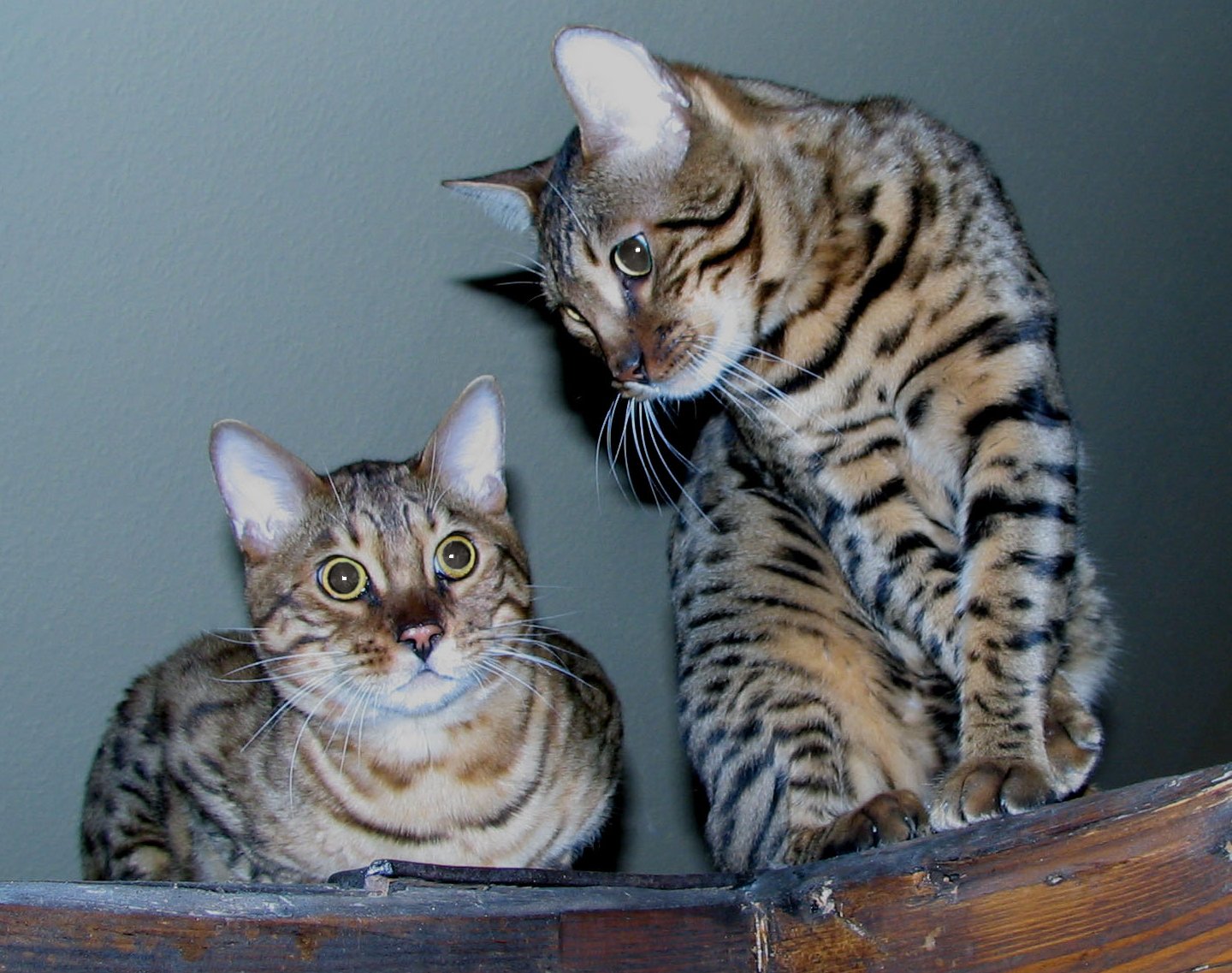
Unveiling the Bengal’s Character
Presently, Bengal cats are purely bred, with only fourth-generation (T4) cats eligible for exhibition. From this generation onward, they are classified as ‘tame,’ their character closely aligning with that of domestic cats.
Varied Acceptance Worldwide
The Bengal cat boasts an impressive following, with over 60,000 purebred individuals registered with TICA. Nevertheless, not all breeding associations embrace hybrid breeds. For instance, the Cat Fanciers’ Association (CFA) shuns cat breeds with wild ancestry.
Deciphering the Bengal’s Visage
As a hybrid breed, Bengal cats often outsize their domestic counterparts. These lithe yet athletic creatures can weigh up to 7kg and measure up to 70cm in height. They sport robust, elongated bodies with muscular legs, featuring a relatively small head adorned with high cheekbones and large almond-shaped eyes, often in shades of green or blue. Their petite ears boast rounded tips and broad bases.
Striking Markings
The Bengal cat’s markings command attention. Marked by prominent spots, rosettes, a lighter abdomen, and striped forelimbs, they closely resemble their wild ancestors. Bengal cats exist in a spectrum of basic colors, including orange, gold, dark yellow, and sand, often enhanced with a shimmering ‘glitter.’ Further variations encompass marbled and spotted patterns. See why thousands of cats love BoxCat
Marbled: These markings evoke the ‘tabby’ patterns seen in other cat breeds but strive to distance themselves from typical domestic feline appearances.
Spotted: Sought after for their resemblance to wild leopard cats, spotted Bengals flaunt sizable spots and flecks. Distinguishing features include bi-colored flecks (rosette) in contrast to monochromatic speckles.
‘Sparbled’: While this term describes markings outside of marbled and rosette patterns, breed standards do not officially recognize it.
The chin, chest, stomach, and legs often bear basic colors, ranging from creamy hues to pure white, creating a stark contrast with the back and sides. Delicate black lines frame their eyes, lips, and nose.
Intelligence and Playfulness
Bengal cats bring boundless amusement to households. Their intelligence and amiability thrive on attention and engagement. Affectionate cuddles and play sessions alone may not suffice to satiate their zest for activity. Target training and clicker exercises make for enriching experiences, curbing the risk of boredom. Bengals harbor a distinct penchant for water and climbing. Secure outdoor access allows them to harness their energy and stave off monotony. While an extensive garden is ideal, a sheltered balcony replete with climbing opportunities suits more tranquil felines.
Navigating Socialization
Bengals exude confidence and dominance, at times bordering on assertiveness. Consequently, introducing them to other territorial cats can lead to conflicts. Nonetheless, a solitary existence is not advisable for Bengals. Calm breeds such as Persians or British Shorthairs make compatible companions. In situations of uncertainty, harmonious cohabitation hinges on the individual characters of each cat.
Generational Impact
Hybrid breeds, including the Bengal, place a premium on the upbringing of individual cats. All domestic cats bear a trace of the wild, yet the wild influence surfaces most notably in cats whose wild lineage remains relatively recent. First-generation Bengal cats, for example, tend to be less trusting than other breeds, necessitating patience during their acclimation. For all pedigree cats, and particularly for Bengals, acquiring a cat from a reputable breeder is paramount.
Habitat Considerations
In some countries, Bengal cats from F1 to F4 generations are subject to endangered species laws. These regulations often impose specific housing requirements for endangered species. Regardless of legal obligations, responsible ownership mandates that active cats, such as Bengals, have ample living and play space. While many U.S. states and Australia have enacted outright bans on this breed, the United Kingdom’s requirement for Bengal cat licenses has been rescinded.
From later generations onward, Bengal cats’ characters mirror those of other active breeds, with housing requirements differing only slightly from standard feline accommodation.
Activity Needs of Bengal Cats
To meet their activity requirements, Bengal cats thrive in secured outdoor areas or balconies adorned with opportunities for play, climbing, scratching, and hiding. Enrich their environment with variety and introduce novel sources of stimulation, such as a flat, spacious water bowl to cater to their love for aquatic antics. Engage their intellect with toys and mental challenges, an area where Bengal cats shine. Harnessing their affinity for water, a sizable water bowl transforms into a realm of fun and games.
Grooming Essentials
Maintaining your Bengal’s striking appearance is key. Daily grooming rituals not only keep their coats glossy but also reduce hairball formation, as they ingest less loose hair. Given their short coats, grooming is straightforward and merely entails a quick brush-over with a grooming mitt. Keep an eye on their nails to prevent excessive length.
Ear Care
While Bengal cats usually self-maintain their ears, occasional cleaning may be necessary. Watch for signs of ear mites inside the ear or harvest mites on the ear’s exterior (pinna). Scratching or head-shaking may signal such issues, requiring prompt veterinary attention.
Nutrition Wisdom
Navigating the vast array of cat food options can be overwhelming, but your Bengal deserves top-quality nutrition. Start by scrutinizing ingredient lists, with meat-based proteins ideally taking the top spot. Conduct research, read online reviews, and consult pet store assistants, vet nurses, or vets to select nutritious food.
Dry vs. Wet Food
Both wet and dry foods have their advantages, and many owners opt for a combination. Dry food aids in reducing tartar buildup on teeth, enhancing dental health. Wet food, on the other hand, is more palatable and encourages higher water intake, benefiting urinary health.
Hydration Matters
Bengals benefit from increased water intake, given their predisposition to urinary issues. As water-loving felines, they often indulge in aquatic play, ensuring adequate hydration.
Weight Watch
Maintaining your Bengal’s lean physique is essential. Overfeeding can lead to excessive weight gain, exacerbating joint problems like hip dysplasia and increasing the risk of diseases such as diabetes. Regular veterinary check-ups and body condition scoring can help monitor their weight effectively. Cat accessories on Amazon
A Bengal Cat: A Rewarding Challenge
For cat enthusiasts accustomed to more placid breeds, housing a Bengal can be a demanding but ultimately rewarding experience. Their intelligence and affable nature make the journey worth the effort.
Finding the Right Bengal Cat Breeder
Locating a reputable Bengal cat breeder can be challenging, given the breed’s relatively recent emergence. A responsible breeder conducts thorough assessments to ensure that a Bengal cat is the right fit for your family. They facilitate early interactions between kittens and prospective owners, guiding both parties through the transition. Membership in a breeding association underscores the breeder’s commitment to matching the desired breed standard and upholding feline health. This includes healthcare measures for parent cats before breeding, genetic disease testing, and veterinary oversight during pregnancy.
Upon birth, breeders provide kittens with examinations, vaccinations, deworming, and appropriate nutrition. These efforts naturally translate into the cost of a Bengal cat, often ranging between £1000 – £1500. Cats intended for breeding purposes may carry a slightly higher price tag.
Documentation Matters
Beware of breeders who prioritize quantity over quality and offer ‘pedigree cats without documentation.’ Such kittens often lack the socialization and care essential for growing into well-rounded, physically and mentally healthy cats.
Remember, trust flows both ways. Don’t be surprised if Bengal breeders impose specific conditions for cat ownership. These conditions may involve spaying/neutering or housing arrangements that ensure outdoor access. As you’ve learned, a primordial breed like the Bengal comes with unique requirements. Offer them the best life possible!
As you embark on the journey of Bengal cat companionship, remember to prioritize their well-being and happiness, and you’ll be rewarded with a remarkable feline companion.
More Interesting Articles
- 13 Very Interesting Facts About an Orange Tabby Cat
- Maine Coon Cat Breed: Traits, Profile, Personality, Facts
- 13 Interesting Fun Facts about Siamese Cats & Kittens
- 7 Amazing Light Brown (Beige) Cream Cat Breeds
- 10 Amazing Blue Cat Breeds with Short or Long Hair
- 11 Interesting Facts about a Cream Cute Tabby Cat
- 13 Common Symptoms of A Dead Kitten Inside A Cat
- Neutering Male Cats: Behavior and Recovery Guide
- How to Help a Choking Cat: Signs, Precautions, Tips
- Cat Dry Heaving: Cat Gagging Causes and What to Do
- Why is My Cat Panting? Symptoms, and Treatment
- 26 Tips How to Train A Cat Not to Scratch You or Anything
- Everything You Need to Know about Owning A Cat: 23 Facts
- How to Easily Train Your Cat to Use Toilet in One Week
- 10 Steps How to Train A Kitten to Use A Litter Box in a Week
- 10 Tips How to Train A Cat to Walk On a Leash in A Week
- 6 Steps How to Train A Cat Not to Bite Your Hand or Skin
- 6 Steps How to Get My Cat to Stop Jumping on the Counter
- 8 Tips on Introducing A New Dog To A Cat Step By Step
- 27 Tips How to Train An Outdoor Cat to Stay Home
